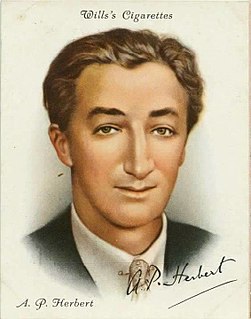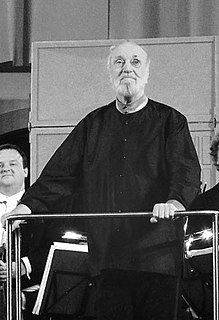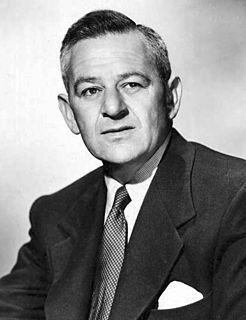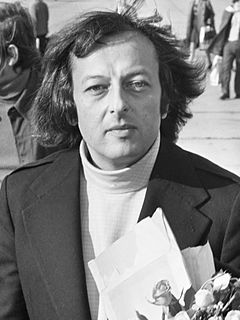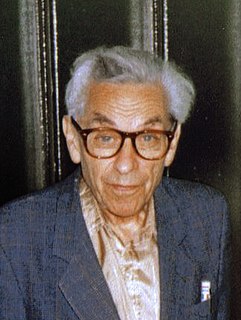A Quote by Susan McClary
The point of recapitulation in the first movement of Beethoven's Ninth Symphony unleashes one of the most horrifyingly violent episodes in the history of music....The point is not to hold up Beethoven as exceptionally monstrous. The Ninth Symphony is probably our most compelling articulation in music of the contradictory impulses that have organized patriarchal culture since the Enlightenment. Moreover, within the parameters of his own musical compositions, he may be heard as enacting a critique of narrative obligations that is...devestating.
Quote Topics
Articulation
Beethoven
Compelling
Contradictory
Critique
Culture
Enlightenment
Episodes
First
Heard
His
History
History Of Music
Hold
Impulses
May
Monstrous
Moreover
Most
Movement
Music
Musical
Musical Composition
Narrative
Ninth
Obligations
Organized
Our
Own
Parameters
Patriarchal
Point
Recapitulation
Since
Symphony
The History Of
Up
Violent
Within
Related Quotes
The point of recapitulation in the first movement of the Ninth [Symphony of Beethoven] is one of the most horrifying moments in music, as the carefully prepared cadence is frustrated, damming up energy which finally explodes in the throttling, murderous rage of a rapist incapable of attaining release.
During a rehearsal of Beethoven's Ninth Symphony the members of the orchestra were so overwhelmingly moved by the conducting of Arturo Toscanini that they rose as one man and applauded him. When the spontaneous cheering has subsided, Toscanini turned to his men, tears glistening in his eyes. "Please . . . please! Don't do this! You see, gentlemen, it isn't me you should applaud. It's Beethoven!"
Creativity is seeing what everyone else sees, but then thinking a new thought that has never been thought before and expressing it somehow. It could be with art, a sculpture, music or even in science. The difference, however, between scientific creativity and any other kind of creativity, is that no matter how long you wait, no one else will ever compose "Beethoven's Ninth Symphony" except for Beethoven. No matter what you do, no one else will paint Van Gogh's "Starry Night." Only Van Gogh could do that because it came from his creativity.
The splendor of a human heart that trusts it is loved unconditionally gives God more pleasure than Westminster Cathedral, the Sistine Chapel, Beethoven’s “Ninth Symphony”, Van Gogh’s “Sunflowers”, the sight of 10,000 butterflies in flight, or the scent of a million orchids in bloom. Trust is our gift back to God, and he finds it so enchanting that Jesus died for love of it.
Salieri was a pupil of Gluck. He was born in Italy in 1750 and died in Vienna in 1825. He left Italy when he was 16 and spent most of his life in Vienna. He's the key composer between classic music and romantic music. Beethoven was the beginning of romantic music, and he was the teacher of Beethoven and Schubert.






